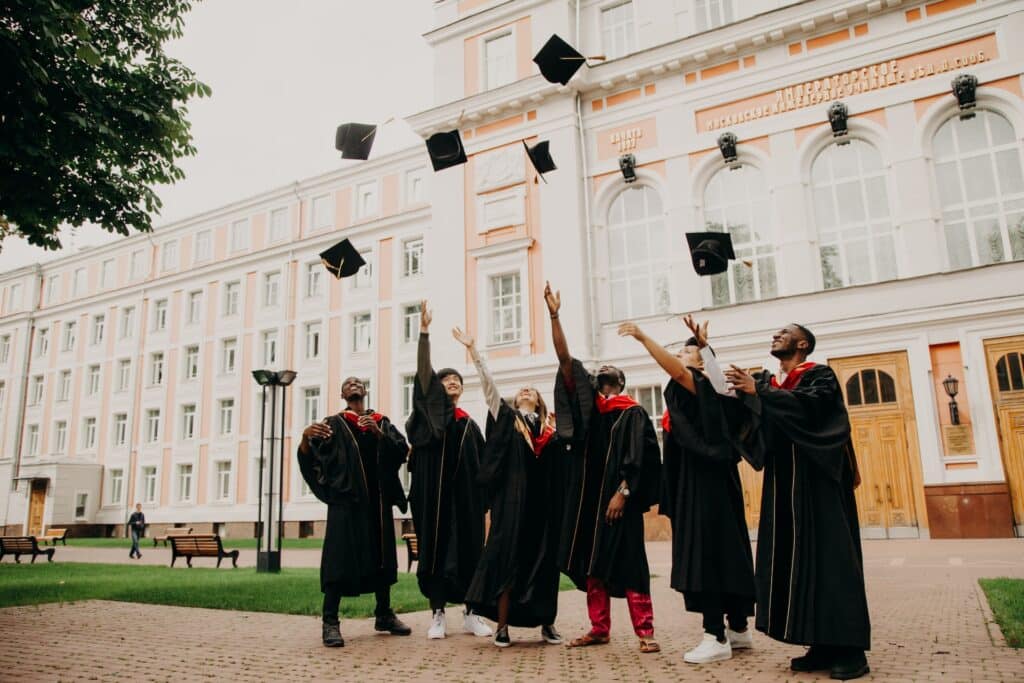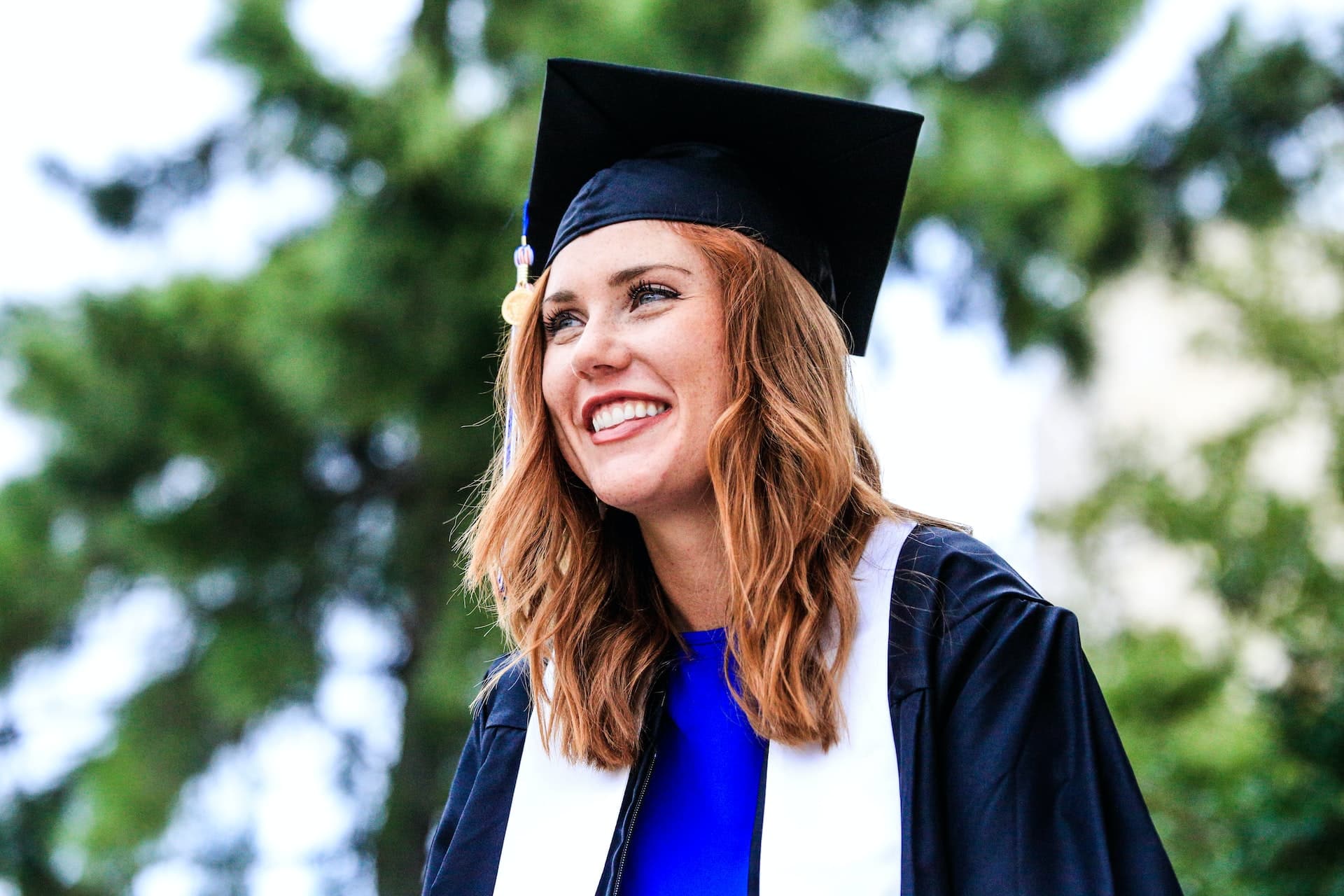More learning and events continue to take place virtually and offer opportunities for participation in-person or remotely. Graduation ceremonies are no exception.
Verbit spoke with leaders from multiple universities to gain insight into the strategies they’re using to meet these new expectations. We found that they’re putting more thought into the attendee experience both in-person and virtually. Institutions are more proactively implementing inclusive attendee practices for their graduations and aiming to make this special moment more inclusive for all students and the campus community.
Read below to get their takes on:
- Why it’s important to invest in inclusivity for graduations
- What technologies can make graduations more accessible
- What leaders at other institutions should be considering
- How to best garner useful feedback from attendees
The University of Tennessee at Chattanooga
Leaders at the University of Tennessee at Chattanooga are embracing a technology-first approach to make their graduations more inclusive.
They’ve launched an accessibility web page that shares parking and seating details for individuals with mobility-related disabilities and are leveraging captioning to support their ceremonies. These technologies have helped make their events accessible to all graduation attendees and viewers.
Specifically, they’re partnering with Verbit to deliver a unique captioning stream to participants. Verbit sends a link that participants can access on their phones for in-person ceremony attendees or view remotely online.
“We use the link and then we publish it on the website and share a QR code to it in the graduation pamphlet,” said Troy Carroll, IT Team Leader at the University of Tennessee at Chattanooga. “People can scan it from their phones and pull up the captioning stream, even when attending in person.”
Making graduations inclusive and equitable has become a long-term priority for leaders at UTC. “We’ll continue to use this captioning even if we move back to face-to-face ceremonies. Just like all schools, we have a duty to make everything accessible for everyone. That’s why every video we stream, every video posted online, regardless of what it is, gets captioned,” said Carroll.

Lewis University
At Lewis University, institutional leaders made their ceremonies inclusive by first considering the diverse pool of individuals attending. From students to their family members, non-native viewers and faculty members with access needs, the university is considering everyone.
“Our graduation ceremonies are open to the public, and we don’t always know who our audience will be,” said Angelia Martinez, Learning Access Coordinator at Lewis University. “The Deaf and hard of hearing community, international students, students with learning disabilities – all of these individuals and more are watching our graduation.”
To make their ceremony inclusive of a diverse audience, Lewis University invested in captioning tools. As a result, they now provide attendees watching in-person and online with a more equitable viewing experience.
“Having the captions is really helpful because we want to make sure that those watching from home are also included,” said Martinez. “We actually had parents and family of students who are not Deaf attend and contact the provost afterward stating, ‘Wow, thank you so much for making this event accessible for us,’” said Martinez.
Additionally, leaders like Martinez see the value in collecting feedback from attendees and their families post-event. Through feedback, they can analyze what they did right and learn what they could do better for the next semester. This proactive approach is having a positive impact on all of Lewis’ graduation attendees and viewers.
University of Akron
The University of Akron’s leaders are offering greater flexibility and access to their graduations by finding ways to engage audiences. Captioning and transcription of presentations have become key components of this strategy.
“We really needed to bring that live captioning card into our ceremonies,” said Heather Rose, Disability Specialist and Service Coordinator at the University of Akron. “If someone comes to graduation and they need that live captioning, they’re given the link to the stream. They can use this link to then watch the transcription on the YouTube channel,” said Rose.
Like many schools, UA leaders understood that built-in captioning provided by platforms like Facebook, Zoom and YouTube often misses the mark. They’re auto-generated and often contain errors which make the dialogue difficult to follow. This issue is not equitable for those with disabilities who rely on captions and word-for-word transcripts to participate.
“We don’t find YouTube captions accurate enough to meet ADA compliance,” said Rose. It was critical to meet these important accessibility benchmarks to ensure an inclusive experience, and it led them to consider Verbit’s education solution for their ceremonies. “It’s also helping attendees with attention deficit disorder, auditory processing disorder and learning disabilities. All of them benefit from having that visual support,” said Rose.
Auto-generated and streaming technologies may sound intimidating. However, Verbit’s direct integration into platforms where universities host graduation ceremonies makes the process simple.
“We’re not technicians, so tapping into these resources really helped us,” she said.
Institutional leaders no longer need to fear the process of delivering greater access with Verbit’s specialized tools and team. Verbit is available to assist them through every step of the process at any hour of the day.

Captioning is just one step in accelerating progress
While these captioning-focused success stories showcase some of the great work institutions are doing to include more audience members, captioning is just one piece of the accessibility puzzle. There are many additional considerations institutions must make to ensure their events are inclusive.
Verbit can serve as an essential partner to institutions as they look to support more inclusive events and ceremonies. We’re working with the likes of California State University, South Dakota State University and Indiana University, among others, on their inclusion strategies. Reach out to learn more about live captioning tools and how our specialized education team can assist you in your efforts.




